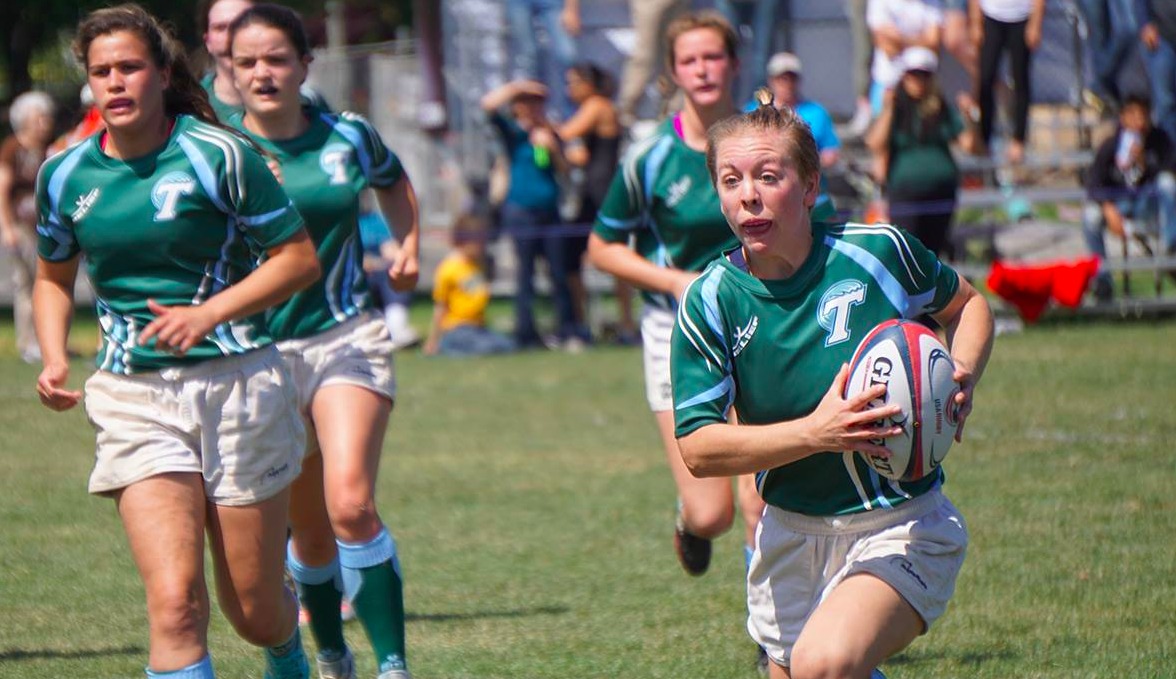
Tulane has withdrawn from the women’s DII college national championship. The spring champion informed USA Rugby of its decision today, and the national governing body will address the next course of action shortly.
A combination of insufficient funds, final exams and on-campus obligations influenced Tulane’s decision, but so did an element of surprise. The Louisiana team re-entered the South Independent Rugby Conference (SIRC) after a 10-year hiatus, and set what it believed to be reasonable goals: win the matrix season and compete at playoffs. But the (essentially) first-year team turned out to be better than expected, finishing runner-up at the SIRC championship and then winning the South regional, which then necessitated a trip to California for the spring final four.
The trip to Davis was a pleasant surprise in terms of achievement, so Tulane fundraised furiously to get to the West Coast in less than two weeks. The team went into the spring championship with an underdog mentality, and only focused energy on the next game. But another two wins against Salisbury and Humboldt saw the once unthinkable: First-year Tulane was now the DII spring champion. As the team reveled in its incredible season, a new reality began to set in: How was Tulane going to rally for another trip to California in fewer than two weeks? It wasn’t just about money; it was also about school.
“The girls spent an incredible amount of time setting up fundraisers throughout the year,” Tulane coach Jessica Mallindine explained. “What we didn’t know was exactly how much we were going to need, and after this year we now know how much an average season costs and how much money we have to raise each semester. There is no information available that we are aware of that would show those costs, and when you are a new team, it is challenging to really grasp what that cost is and what competing really means for a team.
“With the tournament format, there is very little that they can do to counter missing classes,” Mallindine addressed the two road trips and two flights in a month. “In April alone, they had to take off nine class days to be able to compete. The professors have been amazing with the girls and so supportive but, understandably, there is a limit on what they can allow a club sport to do, and we have certainly pushed that limit as far as possible.”
Time and financial demands were stressful, but the last straw was final exams. The national championship falls on the last day of finals, so students would have missed up to three days of exams week. May 7 is also the last day for students to move off campus, so the players would have had about 10 days to reschedule exams, raise money to California, and also organize a move off campus.
“It proved to be more than the team could handle,” Mallindine confessed. “The girls wanted to play against [DII fall champion] Davenport, as they are a fantastic side and would be great to gauge where we had come and how much we need to improve to be competitive against a very solid program.
“We do apologize for any disappointment and inconvenience to the Davenport team, families and fans for being unable to meet in California for the national final,” the coach added. “We also know how difficult it is to fly such a long distance, and understand the significance of the commitments Davenport has already made to play in the championship. If there was any feasible way to play in the final, we would.”
The 2015-16 season marked the second year in which the split-season champions were scheduled to meet in the national championship. Even though it worked in the inaugural year (with admirable efforts from Penn State, Central Washington, Notre Dame College and UC Riverside to make it happen), this season has been a ringing condemnation of the set-up.
“Given how stretched USA Rugby is, I believe they have done the best that they could to help us through the painful growing process that comes with being a new club,” Mallindine concluded. “There did seem to be quite a bit of uncertainty around where the different rounds would be held, which caused some issues when trying to estimate costs early. Outlines and information packets to the teams at the beginning of the semester which details all the information about the structure, locations, and venues so that teams can develop a more substantial financial and team plan would have alleviated a lot of the stress over the unknown.”
No doubt there is more unknown in the future, as USA Rugby will have to reconsider the feasibility of national championships – at least in the collegiate women’s game – going forward.




